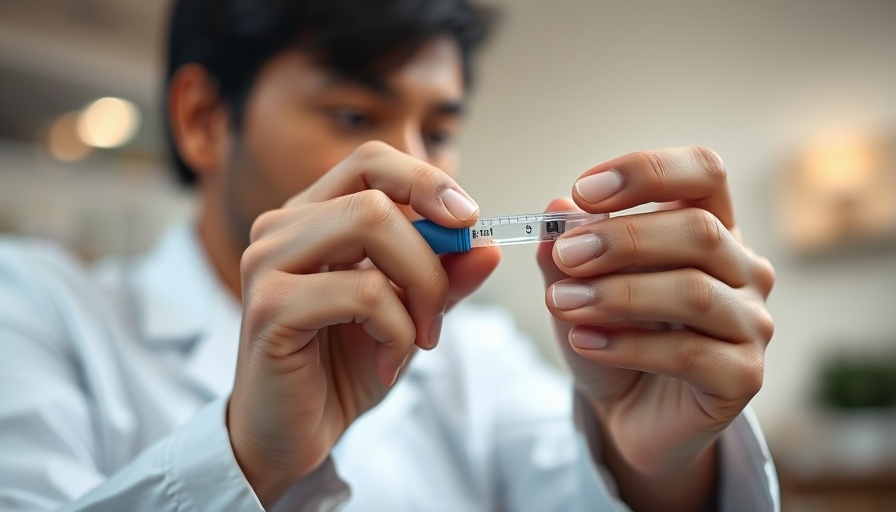
Understanding At-Home Menopause Tests
In recent years, at-home menopause tests have gained popularity among women looking for clarity on their hormonal status. Marketed as a way to determine whether a woman is entering menopause, these tests examine key hormone levels, including follicle-stimulating hormone (FSH), luteinizing hormone (LH), estradiol, and progesterone. Taking these tests usually ranges from $150 to $400, with some involving a simple finger prick and others requiring lab visits.
However, experts are voicing concerns about the utility and accuracy of these tests. According to Dr. Marie Christakis, a prominent voice in women's health, menopause is better diagnosed clinically based on symptoms rather than through testing. The inconsistency in hormone levels across a woman’s menstrual cycle contributes to the unreliability of at-home hormone panels.
The Clinical Diagnosis of Menopause
It is vital to establish that menopause is a clinical diagnosis. Major health organizations, including the American College of Obstetricians and Gynecologists (ACOG) and the Menopause Society, emphasize that age, menstrual history, and symptoms should suffice for diagnosis without the need for hormone testing. Dr. Christakis states, “Menopause is a clinical diagnosis, and hormone testing is unnecessary.” This consensus reflects a collective understanding that women can gain insights about their health without relying on potentially misleading at-home tests.
What Doctors Want You to Know
Healthcare professionals specializing in menopause care are concerned about the rise of these direct-to-consumer tests, which could lead to confusion and misdiagnosis. The messages surrounding menopause care must be clear and evidence-based, emphasizing that not all hormonal fluctuations indicate the onset of menopause. Dr. Nanette Santoro points out that the large variability of reproductive hormones throughout a menstrual cycle complicates the interpretation of at-home test results.
The Risks of Misdiagnosis
As enticing as at-home menopause tests may seem, utilizing them comes with risks. Misinterpretation of results could result in unnecessary worry for women entering this new phase of their lives. Some might eagerly embrace treatments or lifestyle changes based on incorrect readings, which can lead to either overtreatment or inadequate care. The potential for ignoring clinical signs in favor of test results could detract from receiving comprehensive women’s health care.
A Better Approach to Managing Menopause
Instead of relying on hormone panels, women are encouraged to consult with qualified healthcare providers. Discussions surrounding individual symptoms, health history, and lifestyle considerations can lead to a better understanding of what to expect during menopause. This personalized approach fosters a sense of empowerment, as women actively take part in their health decisions.
Community Resources for Menopause Support
For those in Central Ohio seeking more information and support regarding menopause, community resources can make a substantial difference. Local support groups, health workshops, and educational events provide platforms for sharing experiences and learning about effective management strategies. Additionally, healthcare practitioners can recommend evidence-based interventions aimed at alleviating menopause symptoms, helping measure success outside of unreliable tests.
Final Thoughts: Navigating Menopause with Confidence
Embracing menopause doesn’t have to be daunting. By seeking education and fostering open discussions with health professionals, women can navigate these changes with confidence. At-home tests have sparked significant conversations about menopause, but they may not be the most reliable first step. As you embark on this journey, remember that understanding your body and its natural rhythms, coupled with proper medical care, are the keys to handling menopause effectively.
 Add Row
Add Row  Add
Add 




Write A Comment